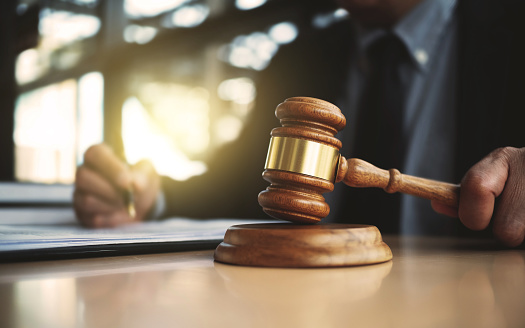
Dealing with an injury can vary from relatively straightforward to utterly life-changing and really everything in between. In most cases, you will go from having a perfectly normal and everyday life to not just having to deal with physical and mental pain but also probably having to deftly navigate the complicated world of legal claims and, of course, dealing with insurance companies which have a habit of being difficult to deal with. As such, it’s easy to feel completely lost when you don’t know what steps you need to take next. This post will be your guide to help you step around the complexities and end up in a place that is less confusing and, hopefully, one where you can regain some semblance of the lie you once had.
Consult A Personal Injury Lawyer
Your first step, regardless of the type of injury sustained, should be to contact a personal injury lawyer. Now, this is where it gets a little bit more complicated because many different fields make up the overall discipline of personal injury. This means if you are a victim of medical malpractice, you should contact a law firm specializing in this form of law. Conversely, if you are seeking compensation for an injury at work, a workers’ compensation lawyer will be your best bet to get you through to the other side.
Nonetheless, whatever avenue you need to go down, it’s vital to select a lawyer who will fight tooth and nail on your behalf. These Atlanta Personal Injury Lawyers make a note of saying that many larger law firms have a reputation for poor client support, making it vital to choose the right ones. You can often get a feel for a firm by initiating an initial consultation and discussing your situation with them. These are usually free, and will let you know:
- If your case is worth pursuing (based on circumstance)
- If you can trust the firm you are dealing with
- Your responsibilities
- Their responsibilities
- Cost and payment terms
Once you have a good idea of whether or not they are best suited to represent you, you can hire their services and begin initiating legal proceedings to hopefully get you back on your feet financially, physically, and mentally.
Document All Evidence
Take pictures of your injuries and the accident scene if pertinent, and save copies of all medical records and bills. Keep a diary of your symptoms and treatments, allowing your lawyer to create a case that accurately represents your situation. Aside from the usual documentation, you must collect witness names and contact details and get written reports from the police or doctors involved. Evidence helps build a strong case for compensation; without it, proving fault can be difficult. Detailed evidence makes it easier for personal injury lawyers to give accurate legal advice and documentation. It also speeds up the claims process with insurance companies or court cases related to road accidents or other types of injuries.
Avoid Signing Documents Without Legal Counsel
Never, ever sing anything without first running by your legal team. Singing anything without fully understanding the repercussions or outcome could severely dent your right to continue litigation and possibly completely derail your case. Obviously, there are some situations where you could claim that you were made to sign documentation under some sort of duress, but this merely adds additional layers to what is already likely to be a ferociously complicated case. Instead, never be afraid to tell another party you are uncomfortable signing things until you have run it by your lawyer.
If they make things difficult or awkward, you should notify them that any further contact they have with you shall be recorded and given to your legal team, which can decide how to use it. In most cases, this will be enough, but if they persist, you should insist that they contact your lawyer directly, as you will no longer receive their communication.
Be Aware Of The Statute Of Limitations
Paying close attention to the statute of limitations is crucial, as this legal principle imposes a stringent time limit on the ability to file a lawsuit after an injury has occurred. Missing these deadlines can lead to the unfortunate consequence of losing the right to seek any form of compensation for the injuries sustained, rendering the entire pursuit of justice effectively null and void. The statute of limitations varies widely depending on the specific type of injury, jurisdiction, and the intricate circumstances surrounding each individual case. For example, personal injury claims often have a time limit ranging from one to three years from the date of the incident, while medical malpractice cases may involve different rules, particularly when the injury is not immediately discovered. This variability makes it imperative to understand the exact legal timelines that apply to your situation.
Explore Alternative Dispute Resolution Options
Exploring options presents itself as a highly effective strategy, allowing parties to resolve conflicts more amicably and efficiently compared to the often lengthy and costly process of traditional litigation. These options encompass methods like mediation and arbitration, which provide a less formal yet structured framework for settling disputes. Mediation, for example, involves a neutral third party who assists in facilitating meaningful dialogue between the disputing parties, aiming to help them reach a mutually satisfactory resolution. This approach tends to be more collaborative and allows the parties involved to have greater control over the outcome while often preserving relationships by fostering an environment of cooperation and understanding. In contrast, arbitration is more akin to a simplified court proceeding where an impartial arbitrator hears both sides of the dispute and then renders a decision that is usually binding on the parties.
Understand And Don’t Be Afraid To Assert Your Legal Rights
The legal system can often seem overwhelming and intimidating, especially when you are up against well-resourced opponents who might use their influence to challenge your claims, but it’s essential to recognize and remember that the law is on your side to provide protection and fairness. Having the confidence to assert your rights is equally significant. This involves actively participating in your legal journey, asking pertinent questions, and demanding clarity whenever necessary. Engaging with a competent legal professional who can provide expert advice and representation will bolster your position, ensuring that your rights are vigorously defended and that the outcomes are just and equitable.
Dealing with an injury that wasn’t your fault can be difficult, but it is not impossible using the tips in this post. As long as you understand your rights and hire an experienced lawyer, you should come out the other side in far better shape.

















Follow Us